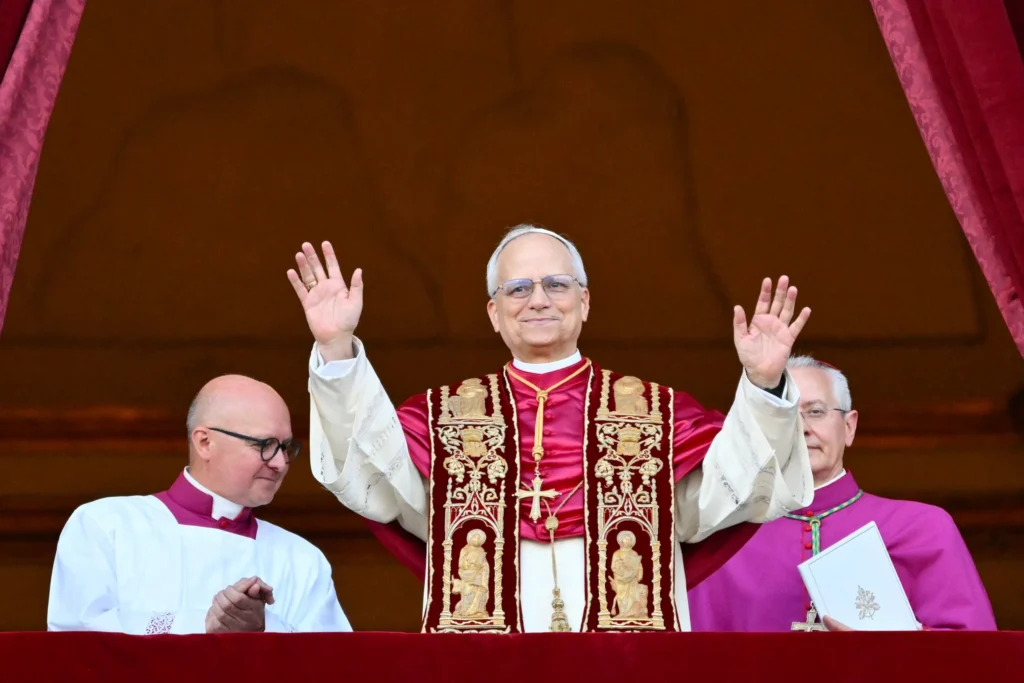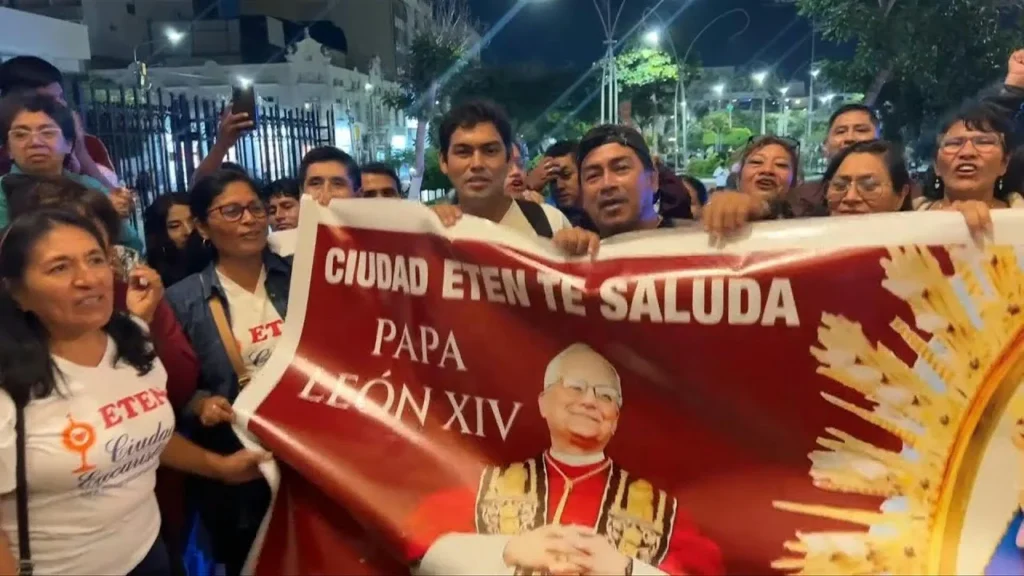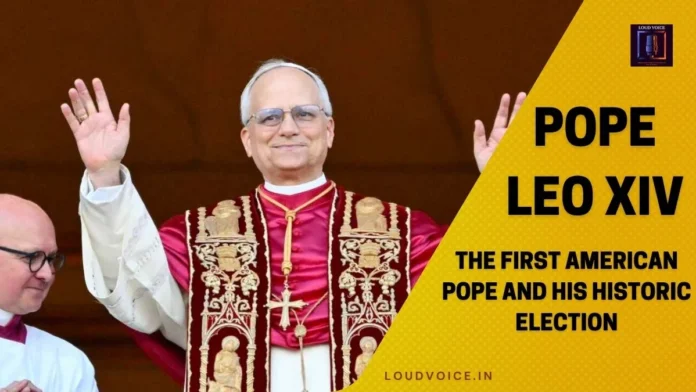Key Takeaways
- Pope Leo XIV, formerly Cardinal Robert Francis Prevost, was elected on May 8, 2025, as the 267th Pope.
- He is likely the first American-born Pope and the first from the Augustinian order.
- The election followed a conclave that lasted less than 24 hours, involving 133 cardinals.
- His background includes extensive missionary work in Peru and significant Church roles.
- Global reactions highlight the historic nature of his election, though some concerns exist regarding past inaction on clergy abuse.
A Historic Announcement
On May 8, 2025, white smoke from the Sistine Chapel signaled a new Pope had been chosen. Cardinal Robert Francis Prevost, now Pope Leo XIV, emerged as the first American-born leader of the Catholic Church. Announced at 19:19 from Saint Peter’s Basilica, this moment captivated millions worldwide, marking a significant shift in the Church’s history.
Why It Matters
The election of Pope Leo XIV is a landmark event, reflecting the Church’s global diversity. As an American and Augustinian, he brings a unique perspective to the papacy. His background in Peru and Church governance suggests a focus on social justice and administrative reform, though challenges like addressing clergy abuse allegations may shape his tenure.
What’s Next
Pope Leo XIV’s papacy begins amid high expectations. His initial message of peace and his predecessor’s legacy suggest continuity, but his American roots and Latin American experience may introduce new priorities. The world watches as he navigates the Church’s role in a complex global landscape.
A New Era for the Catholic Church
The Historic Election of Pope Leo XIV
On May 8, 2025, the Catholic Church entered a new chapter with the election of Pope Leo XIV, the first American-born Pope in its 2,000-year history. The announcement, made by Cardinal Protodeacon Dominique Mamberti from the central loggia of Saint Peter’s Basilica at 19:19 local time, followed white smoke billowing from the Sistine Chapel, a traditional signal of a successful conclave. Over 50,000 people gathered in St. Peter’s Square, their cheers echoing as the bells rang out, marking the ascension of Cardinal Robert Francis Prevost as the 267th Bishop of Rome.
This election is not just a procedural milestone but a historic shift. Pope Leo XIV, a 69-year-old Chicago native, brings a unique blend of American and Peruvian influences to the papacy. His election as the first Pope from the Augustinian order further underscores the Church’s evolving diversity. As the world processes this moment, questions arise: What does an American Pope mean for the Church’s global mission? How will his background shape his leadership?
The Conclave: A Swift and Decisive Process
The conclave that elected Pope Leo XIV began after the death of Pope Francis on April 21, 2025. Held in the Sistine Chapel, it involved 133 cardinals from across the globe, each casting secret ballots to select the new pontiff. The process required a two-thirds majority, and reports indicate it took at least four ballots over less than 24 hours to reach a decision, as noted by Reuters.
The conclave’s brief duration indicates that the cardinals, many of whom Pope Francis appointed, had a strong unanimity. The rapid selection, culminating in white smoke on the second day, reflects the Church’s desire for continuity and stability. The announcement, delivered in the traditional “Habemus Papam” formula, introduced Pope Leo XIV to a waiting world, setting the stage for his historic papacy.
Who is Pope Leo XIV? A Life of Service
Pope Leo XIV is a humble and experienced person who was born Robert Francis Prevost in Chicago in 1955. Of French, Italian, and Spanish descent, he holds dual nationality, having become a naturalized Peruvian citizen in 2015. His journey in the Church began with his ordination as a priest in 1982, followed by a master’s degree from Chicago’s Catholic Theological Union.

In 1985, Prevost moved to Peru as part of an Augustinian mission, dedicating over three decades to serving communities there. He was known as “Santo del Norte” because of his affinity for the impoverished when serving as Bishop of Chiclayo from 2015 until 2023 and then as Archbishop. He was named prefect of the Dicastery for Bishops by Pope Francis in January 2023, putting him in a position to influence bishop selection all around the world. Elevated to cardinal in 2023, his rapid rise made him a surprising yet respected choice for the papacy.
Known for his shy demeanor and limited media presence, Pope Leo XIV is a diplomat with a deep commitment to social justice. His ability to speak Spanish and Italian well, as evidenced in his first speech as pope, demonstrates his global outlook. However, concerns have been raised by groups like SNAP, who expressed “grave concern” over his past inaction on clergy abuse allegations in Chicago and Peru, as reported by Reuters.
Historical Significance: A First for America and the Augustinians
The election of Pope Leo XIV marks two historic firsts: he is the first American-born Pope and the first from the Augustinian order. With over 61 million Catholics in the United States, his election is a milestone for American Catholics, signaling the Church’s growing influence in the Western Hemisphere. The Augustinian order, known for its focus on community and service, adds a new dimension to the papacy’s spiritual legacy.
This moment comes at a pivotal time for the Church, which faces challenges like declining membership in Europe and calls for reform on issues such as celibacy, women’s roles, and clergy abuse. Because of his Latin American background and American ancestry, Pope Leo XIV is uniquely positioned to address these issues and may be able to heal divisions between the Global North and South.
Global Reactions: Pride, Praise, and Concerns
The election of Pope Leo XIV has elicited a wave of reactions worldwide. A tremendous moment for our nation—he’s the first American to become Pope,” former President Donald Trump posted on X, calling it a “great honor” and a moment of “immense excitement.” At the same time, Chicago Mayor Brandon Johnson expressed hometown pride on X, quipping, “Even the Pope proves Chicago’s still got it.” Everything dope comes from here
In Peru, newspapers celebrated Pope Leo XIV’s dual citizenship, highlighting his missionary work and role as Bishop of Chiclayo (La República). Peruvian President Dina Boluarte also praised his election, noting his contributions to the nation. In Rome, over 50,000 people filled St. Peter’s Square, their cheers captured by Vatican News, reflecting global excitement.
However, not all reactions were celebratory. Pope Leo XIV’s handling of allegations of priest abuse raises concerns about potential challenges, as SNAP notes. His past criticisms of Trump and Vice President JD Vance’s policies, as noted in a February 2025 X post, may also complicate his relationship with certain political figures, according to CNN.
Implications for the Catholic Church: A New Vision
Pope Leo XIV’s election could reshape the Catholic Church’s priorities. His experience in Latin America points to a concentration on themes that are important to Pope Francis’s reign, including as poverty, injustice, and social justice. His role as prefect of the Dicastery for Bishops indicates strong administrative skills, which may lead to reforms in Church governance.
As the first American Pope, he may strengthen ties with the United States, where Catholicism is a significant cultural force. His commitment to transparency on abuse allegations, as expressed in his support for Francis’s reforms, will be closely watched. His choice of the name Leo XIV, evoking Pope Leo XIII’s focus on social justice, hints at a papacy engaged with modern challenges.
In his first address, Pope Leo XIV spoke of peace, saying, “Peace be with all of you,” in Italian and Spanish, as reported by NPR. This message suggests continuity with Pope Francis’s emphasis on unity, but his unique perspective may introduce new initiatives, such as interfaith dialogue or climate advocacy.
Election Metrics: Key Details
The following table summarizes the critical details of Pope Leo XIV’s election:

| Detail | Information |
| Elected Pope | Robert Francis Cardinal Prevost |
| Pope Name | Leo XIV |
| Election Date and Time | May 8, 2025, 19:19 |
| Announcer | Cardinal Protodeacon Dominique Mamberti |
| Announcement Location | Central loggia of Saint Peter’s Basilica |
| Bishop of Rome Number | 267th |
| Age at Election | 69 years old |
| Nationality | American (Chicago-born), Peruvian (naturalized) |
| Order | Augustinian |
| Predecessor | Pope Francis (died April 21, 2025) |
| Electors | 133 cardinals |
| Ballots Cast | At least four |
| Vote Requirement | Two-thirds majority |
Challenges and Opportunities
Pope Leo XIV’s papacy begins with both opportunities and challenges. His global experience positions him to address pressing issues like poverty and migration, but the Church’s ongoing clergy abuse crisis remains a significant hurdle. His past inaction, as criticized by SNAP, may require proactive measures to restore trust. Additionally, his criticisms of political figures like Trump and Vance could complicate diplomatic relations, particularly in the U.S.
On the opportunity side, his American identity may resonate with younger Catholics, potentially revitalizing engagement in Western countries. His Augustinian roots emphasize community and service, which could inspire new pastoral initiatives. As the Church navigates the 2025 Jubilee Year, Pope Leo XIV’s leadership will be pivotal in shaping its future.
Conclusion: A Pope for a Global Church
The election of Pope Leo XIV is a defining moment, not just for the Catholic Church but for the world. As the first American Pope, he carries the hopes of millions, from Chicago to Chiclayo, from Rome to remote parishes. His path—from a Chicago priest to a missionary in Peru to the top position at the Vatican—reflects the international mission of the Church. However, a variety of difficult issues, ranging from domestic reforms to international crises, will put his pontificate to the test. Pope Leo XIV’s message of peace, as he enters the global arena, invites us to envision a Church that unites its various faithful and bridges divides.


